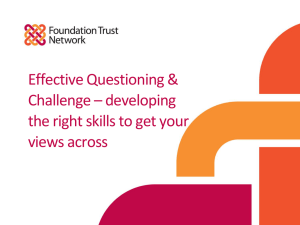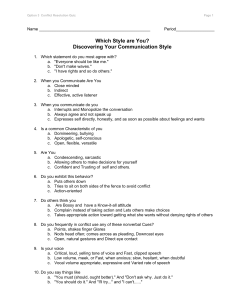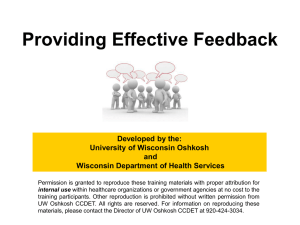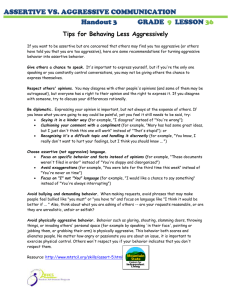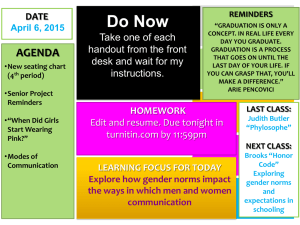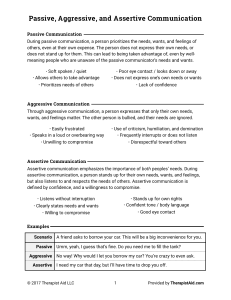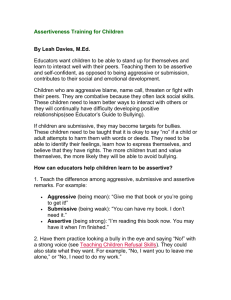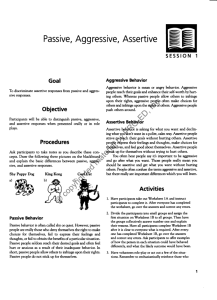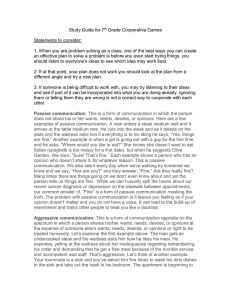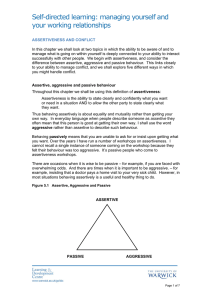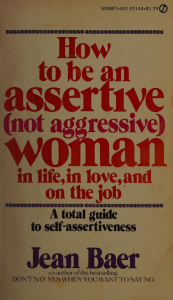Assertive vs. Aggressive GRADE LESSON
advertisement
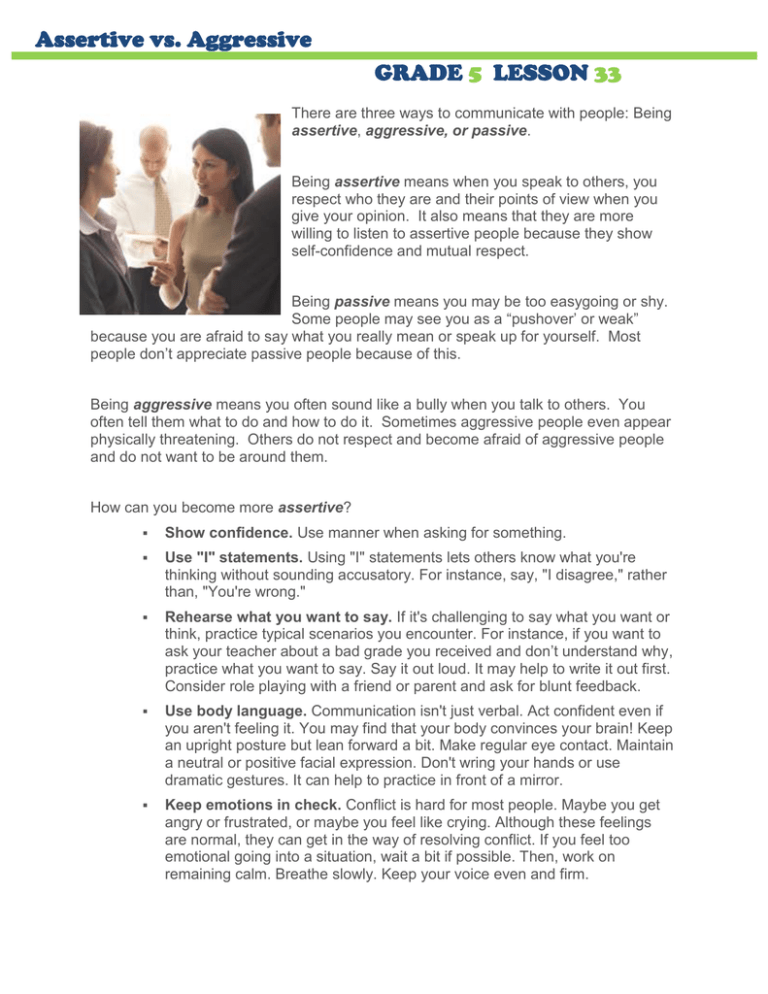
Assertive vs. Aggressive GRADE 5 LESSON 33 There are three ways to communicate with people: Being assertive, aggressive, or passive. Being assertive means when you speak to others, you respect who they are and their points of view when you give your opinion. It also means that they are more willing to listen to assertive people because they show self-confidence and mutual respect. Being passive means you may be too easygoing or shy. Some people may see you as a “pushover’ or weak” because you are afraid to say what you really mean or speak up for yourself. Most people don’t appreciate passive people because of this. Being aggressive means you often sound like a bully when you talk to others. You often tell them what to do and how to do it. Sometimes aggressive people even appear physically threatening. Others do not respect and become afraid of aggressive people and do not want to be around them. How can you become more assertive? Show confidence. Use manner when asking for something. Use "I" statements. Using "I" statements lets others know what you're thinking without sounding accusatory. For instance, say, "I disagree," rather than, "You're wrong." Rehearse what you want to say. If it's challenging to say what you want or think, practice typical scenarios you encounter. For instance, if you want to ask your teacher about a bad grade you received and don’t understand why, practice what you want to say. Say it out loud. It may help to write it out first. Consider role playing with a friend or parent and ask for blunt feedback. Use body language. Communication isn't just verbal. Act confident even if you aren't feeling it. You may find that your body convinces your brain! Keep an upright posture but lean forward a bit. Make regular eye contact. Maintain a neutral or positive facial expression. Don't wring your hands or use dramatic gestures. It can help to practice in front of a mirror. Keep emotions in check. Conflict is hard for most people. Maybe you get angry or frustrated, or maybe you feel like crying. Although these feelings are normal, they can get in the way of resolving conflict. If you feel too emotional going into a situation, wait a bit if possible. Then, work on remaining calm. Breathe slowly. Keep your voice even and firm.
